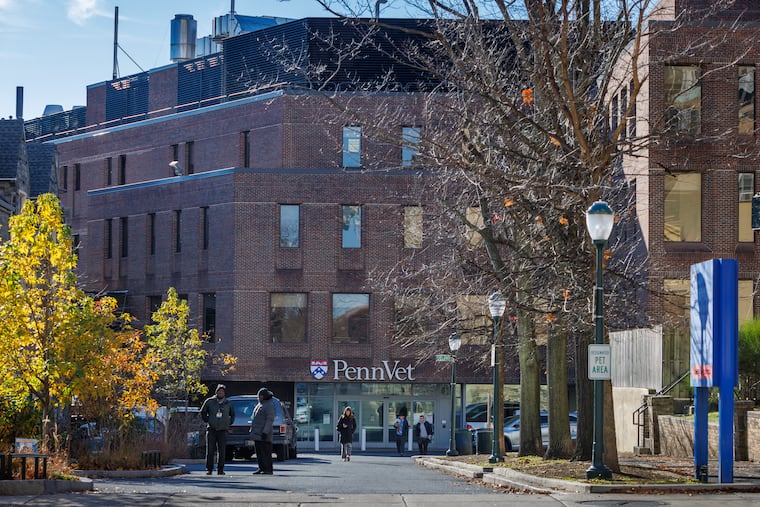Penn Vet says it reduced unpaid student workloads after many of them complained about burnout
PennVet's changes came after 65 fourth-year students and recent graduates signed a letter to school administration that described working more than 100-hour weeks.

Penn Veterinary Medicine says it has made changes to limit students’ work hours between on-call shifts and allow for rest after those shifts after students raised concerns about unsustainable workloads.
Penn Vet, which bills itself as “one of the world’s premier veterinary schools,” outlined these changes in a statement that spokesperson Martin Hackett sent to The Daily Pennsylvanian.
The changes came after 65 fourth-year students and recent graduates signed a letter to school administration that described working more than 100-hour weeks, which exceeds guidelines from the Student American Veterinary Medical Association. SAVMA does not have any authority to enforce its guidelines; it only encourages institutions to follow them. These working conditions, the students said, were getting in the way of not only their education but also their ability to treat patients effectively.
In their final year at Penn Vet, students work largely unpaid clinical rotations at the institution’s two hospitals: the New Bolton Center, a large-animal hospital in Chester County, which treats horses and other farm animals, and Ryan Veterinary Hospital in University City, which treats cats, dogs, and other companion animals.
The changes outlined by Penn Vet were made only at the New Bolton Center, according to two fourth-year students who spoke on the condition of anonymity for fear of retaliation.
Hackett did not respond to requests for comment Thursday.
» READ MORE: Penn Vet students say they’re working 100-hour weeks and patient care is suffering
One major concern for students centered on “treatment shifts,” where students perform nursing duties — walking dogs, cleaning litter boxes, giving animals medication — on top of their clinical rotations. Students said there was little educational benefit to these shifts and that they felt they were being used to address a persistent nursing shortage while also paying more than $60,000 a year in tuition.
After The Inquirer reported on these concerns in December, Brady Beale, chief medical officer of Ryan Veterinary Hospital, sent an email to students discrediting the newspaper’s reporting: “Much of the article represented outdated information,” she said. “We want our hospital teams to be informed that changes have been implemented and that patient care has not been compromised should they receive questions from clients, vets or community members.”
She added: “The nursing skill hours built into the veterinary curriculum are critical to developing competency as future veterinarians.”
But more than a month after Beale spoke of changes being implemented, two fourth-year students said it’s business as usual at Ryan.
“We are kinda at the point where we’ve been fighting so hard for so long and we graduate in three to four months,” one student said. “It’s hard to care so much anymore.”
Another replied: “Yes, we have honestly given up.”